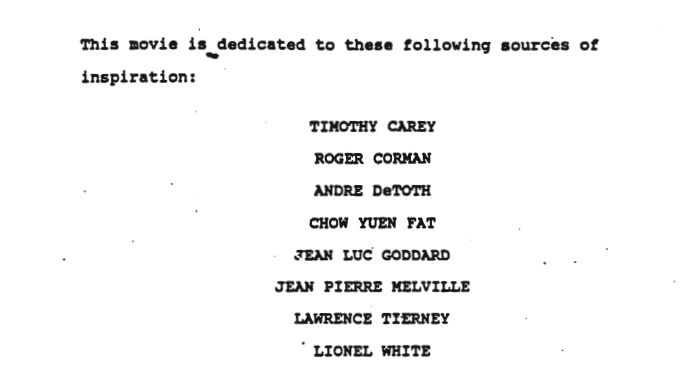Michel Foucault first arrived at the University of California, Berkeley in 1975. By this time, he was already a celebrity in France. He had just published his enormously influential history and critique of the penal system, Discipline and Punish, and he occupied a position at the prestigious Collège de France as chair in the “history of systems of thought,” a position he created for himself. But when he arrived on the West Coast, writes Marcus Wohlsen, “few at Berkeley had heard of Michel Foucault.” Leo Bersani, then chairman of the French department, even had to call philosophy professor Hubert Dreyfus to help “come and fill out the ranks” for Foucault’s lectures.
After the publication of volume one of The History of Sexuality, Foucault would return to Berkeley in the fall of 1979, then again in 1980. By then, the scene had changed dramatically. Foucault was invited to deliver the Howison Lecture that year, a distinguished invitation previously extended to such thinkers as John Dewey, Willard V.O. Quine and, the year previous, John Rawls. By this time, Wohlsen writes, Foucault was, reluctantly, “an international academic superstar.” Filling the hall for his lectures would not be an issue. In fact, Wohlsen tells us,
Crowds crammed the 2,000-seat Zellerbach Hall so quickly that police had to bar the doors. Foucault fans milled around restlessly outside until [philosophy professor Hans] Sluga arranged for a live broadcast of the letures to Wheeler Hall. Its 760 seats filled almost immediately.
According to Sluga, Foucault, increasingly wary of his fame, intentionally titled his lecture—“Truth and Subjectivity: the Stoic Practice of Self Examination”—to sound “learned, abstract, remote” in order to deter a large crowd. That ploy clearly failed.
In the first part of the lecture (at top), the presenter who introduces Foucault begins by gesturing to the philosopher’s fame, then comments that Foucault’s prominent post at the Collège de France was “very paradoxical, since Michel Foucault, although prestigious, is not a typical kind of academic. He is suspicious of all titles and claims to disinterested truth that has been [sic] associated with academia.” After mentioning Foucault’s fierce criticism of every historical assumption and methodology (he was a guest of the History and French Departments), he breaks off his remarks to note that “there’s a mob of people all around, trying to get in.”
Foucault begins his lecture in French (at 8:08), then switches to English for the remainder (at 9:18). He quotes from a historical French psychiatrist’s account of a “cure” involving an “interrogation” and a coerced confession of madness. Foucault calls this one among many examples of “truth therapies,” and it serves—as do such vividly specific archival examples in his books—as a harrowing introduction to the policing of capital‑T Truth that is the essence of the humanist enterprise.
Despite the often profoundly unsettling nature of his investigations, and his attempt to scare off the crowd, Foucault is not dour or boring, nor does he seem at all unapproachable or forbidding. He is patient and self-deprecatingly funny: in a cutting, rueful reference to the growing dominance of analytic philosophy in British and American universities, he says, “I confess, with the appropriate chagrin, that I am not an analytical philosopher. Nobody is perfect.” Then he sums up his project succinctly: “I have tried to explore another direction. I have tried to get from a philosophy of subjectivity to a genealogy of the subject.”
Foucault is a very charming speaker, sprinkling his lecture with little jokes like “It goes without saying… but it goes better with saying…” and dropping in Americanisms like “Monday morning quarterbacking,” to the amusement of the crowd. He shows himself to be very much aware of his audience—these are deeply serious lectures, without a doubt, but Foucault never forgets that he’s facing living human beings, with their own domains of knowledge and subjectivities—and he seeks to reach them where they are while reporting on his disturbing discoveries as an archaeologist of Western humanist discourse.
Foucault returned to Berkeley again as a visiting professor in 1981 and again 1983, the year before his death. Alain Beaulieu, who has catalogued Foucault’s Berkeley archives, described his time in California as happy and productive, “while he remain[ed] critical of some features associated with the ‘Californian cult of the self.’” In fact, “Cult of the Self” was the title of three lectures Foucault delivered at Berkeley in 1983 (listen here), along with six lectures on “Discourse and Truth.” During his time at Berkeley in 1980, when he delivered the lecture above, graduate student Michael Bess interviewed the philosopher. Foucault spoke plainly and passionately about the impetus for his relentless critiques of institutional power and knowledge:
In a sense, I am a moralist, insofar as I believe that one of the tasks, one of the meanings of human existence—the source of human freedom—is never to accept anything as definitive, untouchable, obvious, or immobile. No aspect of reality should be allowed to become a definitive and inhuman law for us.
We have to rise up against all forms of power—but not just power in the narrow sense of the word, referring to the power of a government or of one social group over another: these are only a few particular instances of power.
Power is anything that tends to render immobile and untouchable those things that are offered to us as real, as true, as good.
Read the complete interview, first published in the November 10, 1980 Daily Californian, here.
Related Content:
Michel Foucault’s Controversial Life and Philosophy Explored in a Revealing 1993 Documentary
Clash of the Titans: Noam Chomsky & Michel Foucault Debate Human Nature & Power on Dutch TV, 1971
Download Free Courses from Famous Philosophers: From Bertrand Russell to Michel Foucault
Michel Foucault: Free Lectures on Truth, Discourse & The Self
90 Free Philosophy Courses in our Collection of 800 Free Courses Online
Josh Jones is a writer and musician based in Durham, NC. Follow him at @jdmagness


